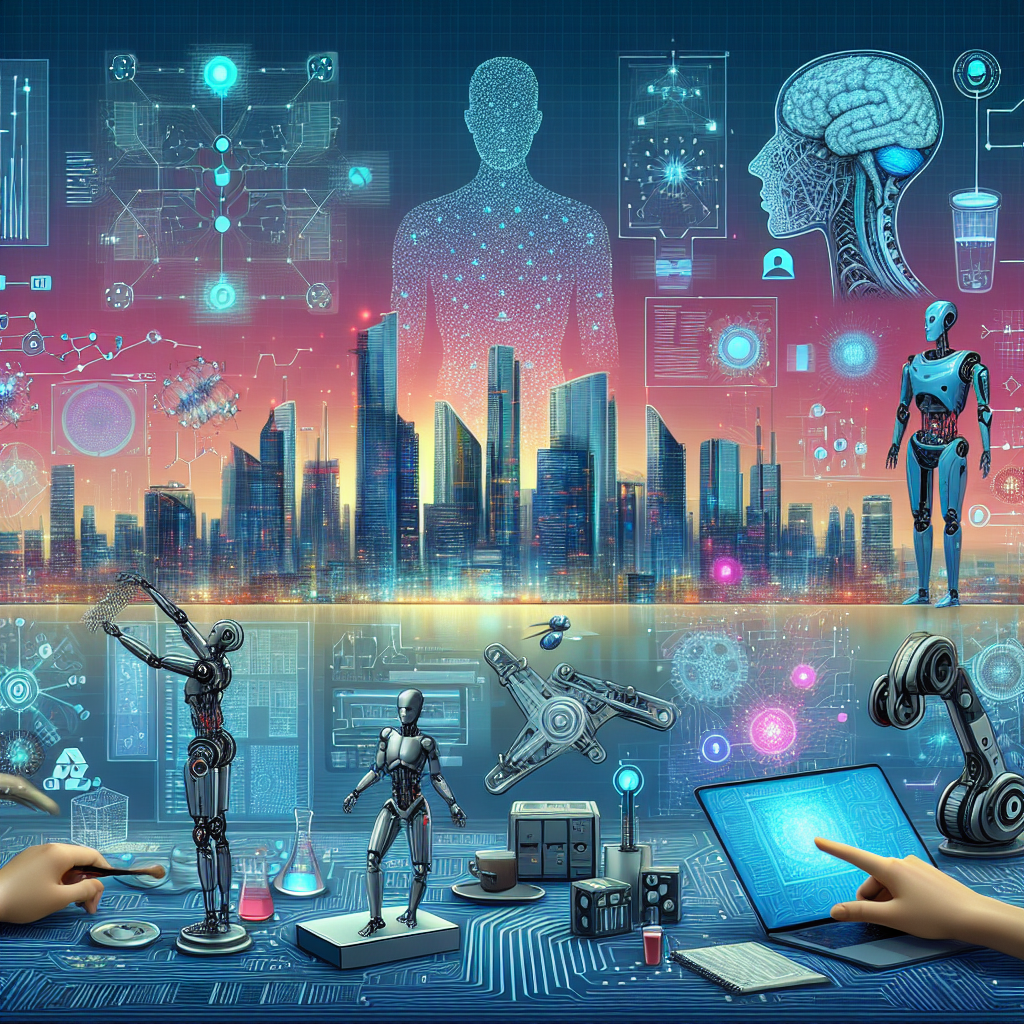Artificial General Intelligence (AGI) has long been a topic of fascination and speculation in the field of artificial intelligence. While narrow AI systems have made significant advancements in recent years, AGI represents a potential game-changer for the future of technology. In this article, we will explore what AGI is, its potential impact on society, and the challenges that must be overcome to achieve it.
What is AGI?
AGI, also known as strong AI or human-level AI, refers to a system that possesses the ability to understand, learn, and apply knowledge in a way that is indistinguishable from human intelligence. This means that an AGI system would be able to perform a wide range of cognitive tasks, such as problem-solving, reasoning, and creativity, across multiple domains.
Unlike narrow AI systems, which are designed to perform specific tasks within a limited scope, AGI is intended to exhibit general intelligence that can be applied to a variety of tasks and contexts. This level of flexibility and adaptability is what sets AGI apart from other forms of AI and makes it a potentially transformative technology.
Potential Impact of AGI
The development of AGI has the potential to revolutionize many aspects of society and industry. From healthcare and education to finance and transportation, AGI could bring about significant improvements in efficiency, productivity, and decision-making.
In healthcare, AGI could be used to analyze medical data, assist in diagnosis, and develop personalized treatment plans for patients. This could lead to faster and more accurate diagnoses, as well as improved outcomes for a wide range of medical conditions.
In education, AGI could provide personalized learning experiences for students, adapting to their individual needs and learning styles. This could help to address the challenges of traditional one-size-fits-all education systems and improve student outcomes.
In finance, AGI could be used to analyze market trends, identify investment opportunities, and make more informed decisions about asset allocation. This could lead to more efficient and profitable investment strategies, as well as greater stability in financial markets.
In transportation, AGI could be used to optimize traffic flow, improve safety, and reduce congestion on roads and highways. This could lead to faster and more reliable transportation systems, as well as reduced emissions and environmental impact.
Challenges and Considerations
While the potential benefits of AGI are vast, there are also significant challenges and considerations that must be addressed in order to realize its full potential. One of the primary challenges is the development of algorithms and systems that can exhibit human-level intelligence across a wide range of tasks and domains.
Current AI systems are highly specialized and limited in their capabilities, which makes it difficult to create a system that can truly replicate the breadth and depth of human intelligence. Researchers are still working to understand how to build AGI systems that can learn and adapt in a way that is comparable to human cognition.
Another challenge is the ethical and societal implications of AGI. As AGI systems become more advanced and autonomous, questions arise about how they should be governed, regulated, and integrated into society. Issues such as privacy, security, and accountability must be carefully considered to ensure that AGI is developed and deployed in a responsible and ethical manner.
FAQs
Q: When will AGI be achieved?
A: It is difficult to predict an exact timeline for achieving AGI, as it depends on a variety of factors such as technological advancements, research breakthroughs, and funding. Some experts believe that AGI could be achieved within the next few decades, while others are more cautious in their estimates.
Q: Will AGI replace human workers?
A: While AGI has the potential to automate many tasks currently performed by humans, it is unlikely to completely replace human workers. Instead, AGI is more likely to augment human capabilities and enable new opportunities for collaboration and innovation.
Q: What are the risks of AGI?
A: Some of the potential risks associated with AGI include job displacement, ethical concerns, and the possibility of unintended consequences. It is important for researchers, policymakers, and industry leaders to address these risks proactively in order to ensure that AGI is developed and deployed in a responsible and beneficial manner.
In conclusion, AGI has the potential to be a game-changer for the future of technology, with wide-ranging implications for society and industry. While there are significant challenges to overcome, the potential benefits of AGI make it a technology worth pursuing. By addressing these challenges and considerations, we can work towards realizing the full potential of AGI and shaping a future that is both innovative and equitable.

